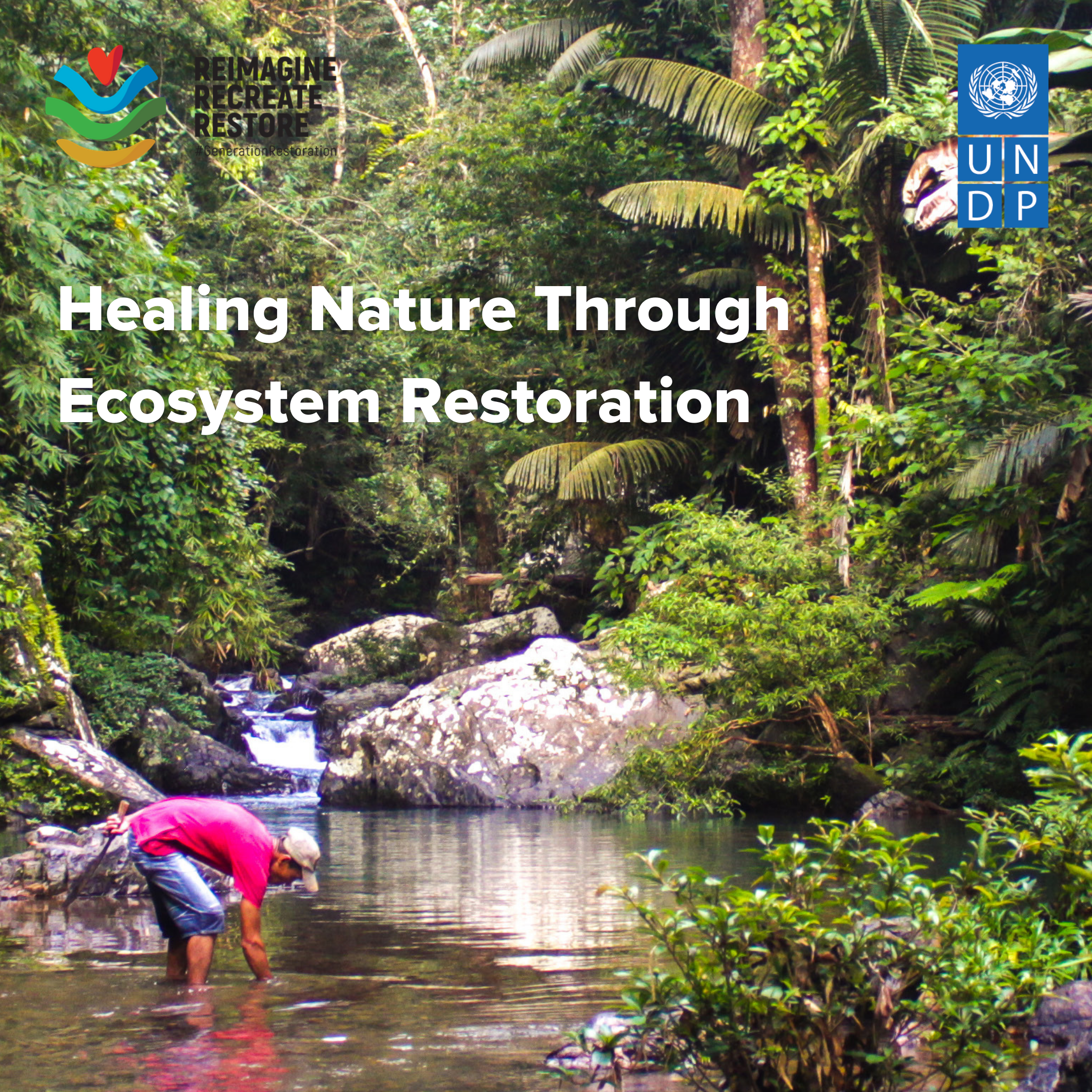Photo from SGP Philippines
By: Secretary Roy Cimatu, Department of Environment and Natural Resources and Dr. Selva Ramachandran, UNDP Philippines
The well-being of humanity depends on healthy ecosystems. Nature purifies the air we breathe, regulates our climate, cleans our water and provides us with food and medicine. However, decades of unrelenting economic growth at the expense of our natural resources have taken a toll on our oceans, forests, wetlands and rivers. Now, the state of our natural ecosystems threatens the very survival of mankind.
Even prior to the COVID-19 pandemic, landmark reports from 2018-2019 have presented us with a bleak outlook for 2020 and beyond. Continuing at its current rate, global warming is likely to reach 1.5C between 2030 and 2052. Even if we strive to end emissions today, global emissions to date will persist for centuries, driving further changes to our climate. If that isn’t worrying enough, around one million species are on the brink of extinction unless action is taken to reduce the drivers of biodiversity loss.
In addition, plastic waste pollution has emerged as a pressing environmental threat — scientists expect that by 2050, our oceans will contain more plastic than fish. Microplastics have entered our food chain, with many fish and marine mammals ingesting microplastics on an unprecedented scale.
The impacts of these threats vary across continents and communities. In the Philippines, global warming has caused frequent disasters that disproportionately affect vulnerable households. The ability of our natural ecosystems to protect at-risk communities is rapidly diminishing.
Over the years, the country has lost 10.9 million hectares of forest cover. That’s 194,000 hectares of average loss each year. Fish stocks are drastically overfished in almost all areas except Eastern Luzon, Palawan, and the Southern Sulu Sea. Reef conditions, an indicator of fish productivity, have similarly declined. In 1997, just four percent were in excellent condition, down to less than one percent in 2012.
The country’s rivers, coastal and marine areas have suffered from marine litter, especially uncollected plastic waste. The Philippines ranks as the third-largest contributor of marine plastics globally, which compromises fish productivity, tourism and human health.
Mangrove forests, which — together with seagrasses and coral reefs — provide protection against storm surges and rising seas. Unfortunately, they have suffered the same fate. Mangrove cover is down from around 500,000 hectares to almost half this amount.
Land degradation in the form of soil erosion and fertility decline has affected agricultural activities in the Philippines. The Global Assessment of Land Degradation and Improvement showed that there are an estimated 132,275km2 of degraded lands, affecting about 33 million Filipinos.
The combined impact of these threats have yet to be fully realized in an economic sense. But, as is the case with many other countries, the Philippines may have already pushed resource usage beyond its limits, compromising long-term viability. Sadly, it’s the small farmers, local fishermen, and vulnerable coastal and upland communities that are the most at risk of losing their livelihoods – and lives – as a consequence.
All is not lost, however, and change is taking place.
Different parts of society have come together to contribute to the repair the country’s ecosystems. A massive greening programme launched by the Department of Environment and Natural Resources (DENR) in 2011 aimed to plant 1.5 billion trees on 1.5 million hectares of degraded forest. Alongside this effort, NGOs have ramped up efforts alongside private sector organizations.
There are now 244 protected areas in the Philippines covering 7.8 million hectares. Marine protected areas are being incorporated into networks for more effective management. Strengthening wildlife protections have led to coordinated efforts among law enforcement agencies. Local communities and indigenous peoples are doing their part, with governments recognizing their effective contributions to conservation.
Innovative solutions to the plastics problem are beginning to pay off. Plastic users are finding new ways to reduce their footprint and there are growing efforts among the public to minimize plastics use. These are matched by government efforts to develop a National Action Plan on Marine Litter.
These efforts alone aren’t just the right thing to do; they’re also the economically smart thing to do. It is far more expensive to restore degraded forests, reef systems and wetlands, than to protect existing ecosystems. But to support this, we need to think better. Legislators should aim to make protection the priority over restoration. Moreover, communities must be incentivized to protect ecosystems through participation in the benefits derived from them. Such incentives can result in the added benefit of lifting communities out of poverty.
Innovative financial mechanisms are needed to encourage investment in conservation. We need to understand nature programmes as cost centres rather than revenue opportunities. Treating well-managed ecosystems as assets would go a long way in advancing protection and improved management and the proper valuation of natural resources and their integration into national accounting systems will provide a full picture of their value to the economy.
Finally, we should look to encourage the application of technology and science-based approaches to restoration and environmental management. Continued investment in research can contribute to cost-effective solutions to our biggest challenges. Appropriate monitoring can provide better policies and approaches.
As we celebrate this year’s World Environment Day, we call on everyone to support the global campaign for the healing of nature through the restoration of our ecosystems. We must do our part as responsible stewards of our planet before it’s too late. It is, after all, the only planet we’ve got.
Roy Cimatu is the Secretary of the Department of Environment and Natural Resources
Dr. Selva Ramachandran is the Resident Representative of the UNDP Philippines
####

 Locations
Locations



